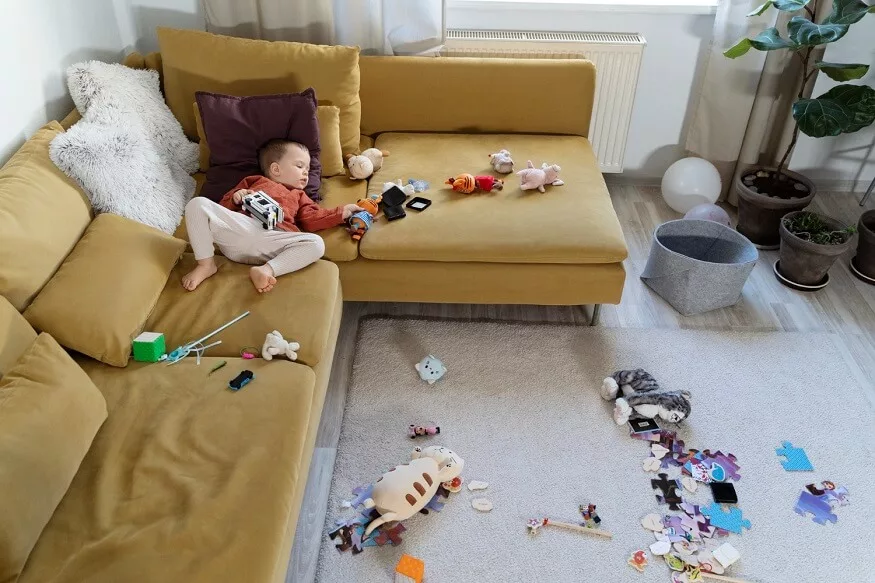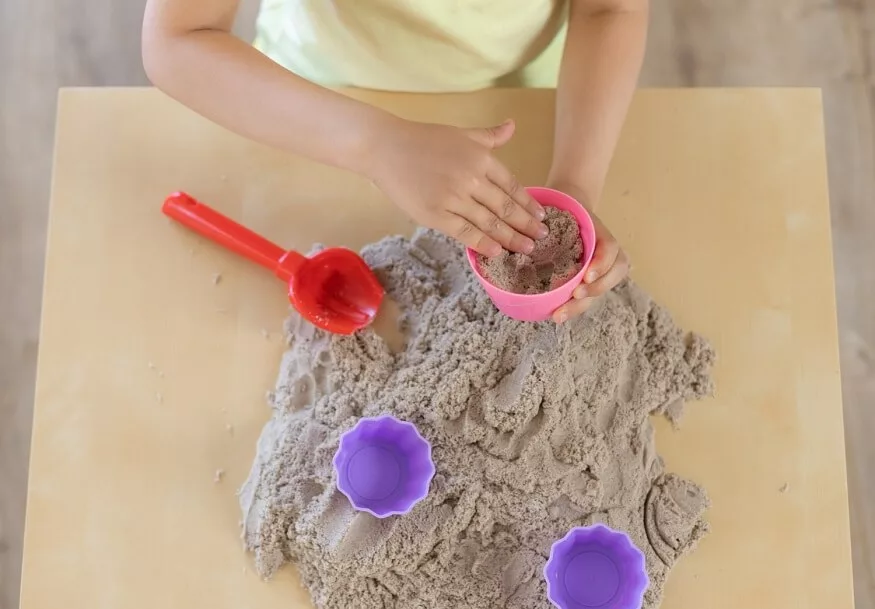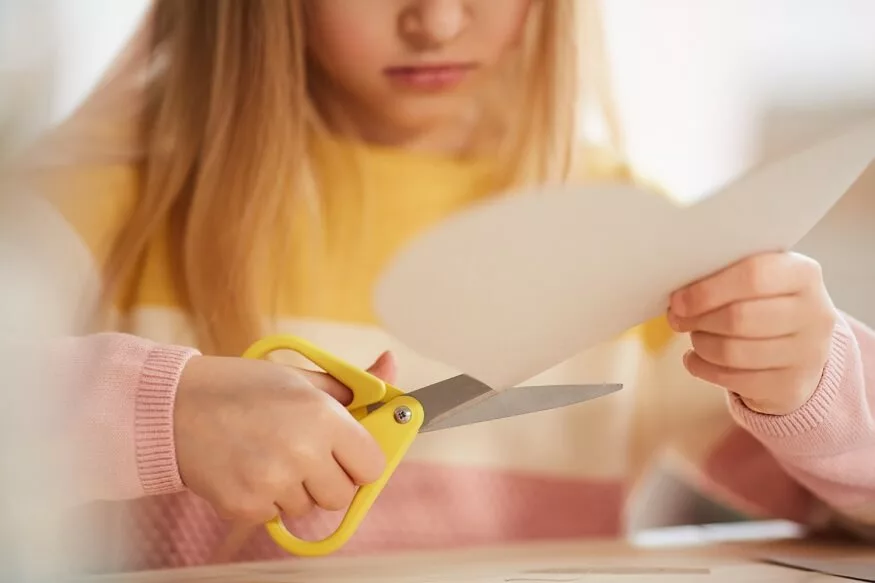One challenge many parents face is the seemingly never-ending saga of toys scattered around the house. If your child has a penchant for wandering around and dumping toys in every nook and cranny, you’re not alone. In this article, we’ll explore practical strategies to tackle the toy tornado, creating a harmonious home environment for both you and your little one.
Understanding the Toddler Behaviour
Before diving into solutions, it’s crucial to understand why children engage in the delightful chaos of toy dumping. For young minds, exploring their surroundings and testing boundaries is a natural part of development. Dumping toys may be an expression of curiosity, a desire for attention, or an attempt to assert independence. By grasping the underlying motivations, parents can tailor their approach to encourage positive behaviour.
Solutions for parents who kids dump toys around
If you have ever navigated the minefield of scattered playthings and wondered how to bring order to the toy tornado, fear not – solutions abound. From creating organised spaces to instilling responsibility and fostering effective communication, here are some keys to a tidier, happier home.
Create Organised Spaces
One effective strategy is to establish organised spaces for your child’s toys. Consider investing in storage solutions like colourful bins, baskets, or shelves. Designate specific areas for different types of toys, making it easier for your child to understand where things belong. Engage your little one in the process, allowing them to participate in decorating and arranging their special play zones. This not only fosters a sense of ownership but also introduces the concept of order.
Implement a Routine
Children thrive on routines, and establishing a consistent daily schedule can significantly impact their behaviour. Designate specific times for play, meals, and bedtime. When children know what to expect, they are more likely to cooperate. Set aside time each day for tidying up together. Make it a fun, interactive experience by turning it into a game or incorporating music. This not only promotes responsibility but also strengthens the parent-child bond.
Encourage Responsibility
Teaching children the importance of responsibility from an early age is a valuable life lesson. Create a routine where your child is responsible for tidying up their toys after playtime. Start with simple tasks and gradually increase the level of responsibility as they grow. Praise their efforts and offer positive reinforcement when they successfully complete their tidying tasks. This not only instils a sense of accomplishment but also builds confidence.
Lead by Example
Children learn by observation, and parents are their primary role models. Demonstrate tidy habits by keeping your own spaces organised. When children see their parents consistently tidying up and taking care of belongings, they are more likely to emulate these behaviours. Turn tidying into a family activity, reinforcing the idea that maintaining a clean and organised environment is a collective effort.
Communicate Effectively
Open communication is key to understanding your child’s perspective. Talk to your little one about the importance of keeping their play area tidy and explain how it contributes to a comfortable living space for everyone. Encourage them to express their thoughts and feelings about the tidying process. By fostering open communication, you create a supportive environment where your child feels heard and understood.
Set Realistic Expectations
It’s essential to set realistic expectations based on your child’s age and developmental stage. Younger children may struggle with complex organisational tasks, while older ones can take on more responsibility. Tailor your expectations to your child’s capabilities, providing guidance and support where needed. Celebrate small victories, and be patient as your child learns and grows.
Address Underlying Issues
Sometimes, wandering and toy dumping may be indicative of underlying issues, such as boredom, stress, or a need for attention. Take a moment to assess your child’s overall well-being and address any potential sources of discomfort. Engage in activities together, offer reassurance, and create a nurturing environment that supports emotional development. Understanding the root cause can guide you in implementing targeted solutions.
Incorporate Creative Solutions
Make tidying up an engaging and creative process. Use colourful labels for storage bins, allowing your child to associate specific colours with different types of toys. Consider incorporating a reward system, where successful tidying efforts are acknowledged with small incentives or a special treat. By infusing creativity into the tidying routine, you transform it from a chore into an enjoyable and fulfilling activity.
Why toddler should know the importance of tidying up after play
- Responsibility: Teaching kids to clean up after themselves instils a sense of responsibility from an early age. Understanding that they are accountable for their belongings fosters a foundation for responsible behaviour in various aspects of life.
- Organisational Skills: Tidying up toys helps children develop organisational skills. They learn to categorise and arrange items, promoting order and making it easier for them to locate toys when desired.
- Respect for Space: Encouraging kids to clean up instils a respect for shared spaces. Learning that their actions have an impact on the environment around them helps develop a sense of consideration for others.
- Routine and Discipline: Establishing a routine for tidying up creates a disciplined approach to daily activities. Children thrive on routines, and incorporating tidying into their daily schedule establishes a healthy habit that can benefit them throughout life.
- Problem-Solving: Tidying up after playtime involves problem-solving skills. Children learn to decide where each toy belongs, enhancing their cognitive abilities and spatial awareness.
- Pride and Ownership: Cleaning up fosters a sense of pride and ownership over one’s space. Children take pride in maintaining a tidy environment, boosting their self-esteem and creating a positive connection to their living spaces.
- Parent-Child Bond: Cleaning up together can be a bonding experience. It provides an opportunity for parents and children to spend quality time together, strengthening the parent-child relationship.
- Preparation for School: Tidying up is a skill that extends beyond the home. In a school setting, children are often required to organise their belongings and maintain a clean classroom, making this early lesson invaluable.
- Time Management: Understanding that cleaning up is a part of the playtime routine contributes to the development of time management skills. Children learn to allocate time for different activities, balancing play with responsibilities.
- Environmental Awareness: Tidying up reinforces the concept of caring for the environment. Children develop an understanding that maintaining cleanliness contributes to a healthier and more pleasant living space for everyone.
By creating organised spaces, establishing routines, encouraging responsibility, and fostering open communication, you can turn the tidying process into a positive and collaborative endeavour. For more such blogs on child development, read EuroSchool blogs.











